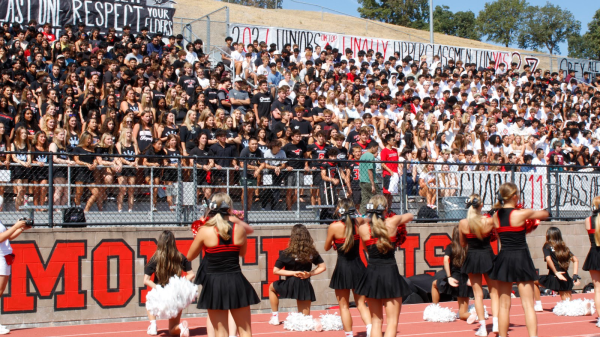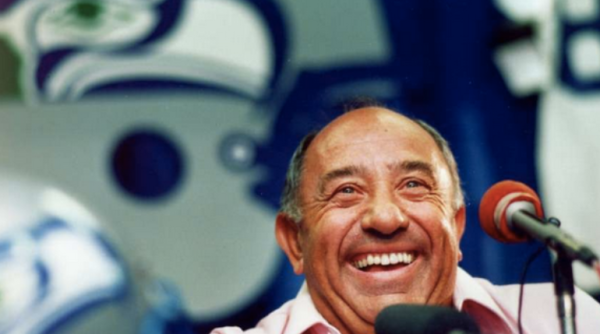Gender Stereotypes Impact Women In Sports

Three strong female athletes from left to right: Mary Lou Retton, Megan Rapinoe, and Serena Williams experience memorable achievements in their sports. Many have looked up to female athletes for facing harsh criticism in sports, and having strength to overcome it.
Women are constantly teared down with harmful gender stereotypes regarding sports. Therefore, it raises the tough question, will women ever see an end to harsh criticism in the sports world and be seen as having athletic abilities equal to men?
Growing up as an athlete can be a challenging role to take on. Also having to face stereotypes simply because you are a woman is equally tough. By falsely labeling women, people are creating extremely invalidating and toxic environments.
Particularly in sports when women seem to have more qualities of masculinity, society tears them down for simply being themselves. Some Women aren’t even seen as being a girl simply because they possess these traits. On the contrary, society praises male athletes who have these qualities of strength and courage. When in reality these qualities could be gender neutral but sadly are used in society to strictly define both men and women, placing them in a stereotypical box.
In order to shift harmful gender stereotypes, adversities can be faced with strength if society is willing to release the fear of being judged by others. Women in sports can use the talent they have to show that they are tough and can do anything that a man can do. Things that are simple such as showing up to practice ready to work hard and not be fearful can be mentally challenging sometimes but it is a big step that shows the strength in women. Also, change can be achieved by standing up to those who criticize women for breaking the boundaries within sports commonly viewed as for men only.
The societal stigma of women being perceived as weaker and less capable than men is a false belief leading to anxiety, depression, eating disorders, lower self esteem and much more. One of the mentally challenging aspects of women battling these mental challenges is that female athletes who feel pressured to prove themselves as stronger than men have to find a way to persevere in their sports despite all the labeling and negativity they face.
With pressure from society to prove themselves, several women set extremely high standards for themselves within their sport. Mentally, women perceive themselves as less capable and weaker than men, but physically they can be just as strong and fit to play any sport they want to.
“Feminine traits such as compassion and all things that are feminine are considered something that doesn’t work in the sports world.”Monte Vista Junior Varsity (JV) tennis coach Yoonies Kim said. “If you think about ‘you throw like a girl’ or ‘you hit like a girl’ in both the athletic world and in society this is all negative terminology.”
Oftentimes, women are expected to fit multiple roles due to how they are viewed. Expectations similar to these are causing many women to face criticism about either being too feminine if they don’t play a sport, or not feminine enough because they do play a sport.
“Sometimes I really hate playing on boys teams because when you do something good no one will say anything, but if I miss a pass or [shoot bad] then they would yell at me,“ Monte Vista Junior hockey player, Soryn Kim said.
The sports world has yet to see an environment where women can coexist with their male counterparts without having to outwork themselves to reach success and prove their worthiness. It is not the surplus of a need to work hard that is an issue, but the fact that women are always compared to men during sports. The comparisons are even more present throughout the media than anywhere else. Due to minimal representation it makes it seem as if women don’t work as hard as men in sports.
This underrepresentation discourages younger female athletes starting out in their sport to have female athletes to look up to. Along with that, common stereotypes diminish the self-esteem of young female athletes. Luckily, many strong and powerful female athletes are amazing influences and inspirations for young women. Women such as Serena Williams, Simone Biles and Alex Morgan are showing the importance of perseverance and prove how powerful women are.
“My first coach ever was on an olympic junior team and she told me not to take [expletive] from anybody and to just do what I want,” Monte Vista Junior wrestler Mason Harsche said.
Society has built how women are viewed in sports very negatively. Therefore we built women in sports on an extremely weak foundation which is only meant to crumble at some point. Despite this issue, several women have taken the step to tear apart the broken foundation in order to build a new one that is stronger than ever.
“My freshman year of wrestling I was absolutely terrified since I was the first girl on the team and I was super scared with no information and had [absolutely] no idea of what I was getting myself into,” Harsche said.
Joining a sport that doesn’t fit the societal norm for a woman is extremely difficult, especially when the majority of the public are against the idea of a woman joining a “man’s” sport.
Sports such as volleyball, or gymnastics are seen as female-dominant sports while others such as football or hockey are viewed as more male-dominant sports. Regardless of what sport women choose to play, the reality is that they will still face criticism in whichever sport they choose to be involved in. Along with the constant criticism, women have to face being sexualized while playing their sport.
Playing volleyball may be seen as unconditionally acceptable for a female, while others, usually men, only support volleyball players when they wear short spandex shorts. On the other hand a girl who plays football is immediately judged due to the way that football is naturally a male dominant sport in our society. Unless, of course, the woman plays women’s football, where they are again sexualized when wearing very small uniforms.
In most cases seeing a girl be the only one in a male dominant sport is either abnormal or just simply unheard of .There is clear evidence of division between what society views as more masculine and feminine in sports. Society is quick to box people up and place certain traits based on what they think a guy can do or what a girl can do. Even though the capabilities that both men and women have don’t realistically share any differences.
Women shouldn’t have to face fear because they feel they will be critiqued for being a girl. What society should see is the positive impact that both men and women have on each other. In the sense that they can uplift each other and not tear each other down. The idea of a team bond grows stronger if there is this level of respect established.
“One day a week on a Friday we let JV boys and ladies play together on the same day, and we even let them play against each other all together,”Yoonies said. “I really thought in my mind that the boys were gonna hit it so hard that the women couldn’t keep up. But I was totally blown away at how the women were able to hit it back just as hard and keep up with the guys, and I think they were surprised.”
“It’s not perfect on the team, you know you’ve got some guys who are [expletive] and treat you like a second class citizen because you’re a girl,” Harsche said.
One step at a time, the rise of more young female athletes who are not afraid to speak up, especially within their actions, will guide our future generations to look up to these women as tough role models.
It’s equally important to notice that it may not come as easy to some women as it does to others to be able to face adversity. For women of color as well it is important to see all types of women from different backgrounds share one common goal, which is to break free from these stereotypes which are a universal issue amongst all women regardless of race and ethnicity. Setting aside our differences and coming together carries great importance as many women are facing similar issues. As a whole women will have more strength if they believe that being different is an asset not a weakness.
“I referee younger kids games and coach them and there is a lot of younger girls that play on boys teams and a lot of those girls are also Asian so I hope to inspire them that they don’t have to quit their sports when their older, since a lot of girls quit when they enter high school because of size difference [between men and women]”, Kim said.
When negative comments tear women apart ultimately the love they carry for their sport has a much greater influence on them. In this way gender stereotyping doesn’t become so much of a threat anymore but rather is viewed by society as an inevitable concept within sports, which persistent action and time will heal.

Maraki Amare is a senior at Monte Vista. This will be her fourth year as a part of the Journalism Staff....










